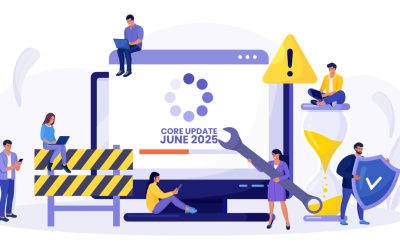In the current digital era, when the internet is the go-to source for information, businesses are continuously striving to improve their online visibility. Search Engine Optimization (SEO) has undergone major changes over time. Any business hoping to sustain or enhance its search rankings must keep pace with these changes. Leveraging organic SEO services is a practical strategy to accomplish this.
When it comes to SEO, the days of just inserting keywords into content and constructing backlinks from any source are long gone. Google, in particular, has improved its algorithms to prioritize the user experience and ensure high-quality content. This requires businesses to implement SEO strategies that prioritize delivering the most in-depth, authoritative, high-quality content possible.
Brands hoping to stay relevant and interact with their audience have to be up to date on the most recent developments in this field.
Here are the top trends in this year’s search landscape.
- Artificial Intelligence to provide personalized search results: In 2024, there are major changes to search engines due to AI and machine learning. Search engines are becoming more intelligent with these cutting-edge technologies, which enable them to understand the underlying meaning of the content we search for. AI allows search engines to do more than merely return relevant results. They try to match users’ particular demands and the context of their questions, understanding the purpose behind them. These days, it’s important to provide a personalized and intuitive search experience than just obtain results. Consequently, there is greater personalization in search this year, not only depending on a specific user’s search and browsing history, but also on what is thought to be the user’s current intention.
- Increasing Importance of Natural Language Processing (NLP) and Voice Search: Voice search and natural language processing (NLP) technologies are transforming the way people utilize internet platforms. As technology becomes more integrated into daily life and people grow accustomed to using it, it’s likely this trend will continue. According to a recent report from Demandsag, there are over 1 billion voice searches every month. This increase in usage points to a shift in the tendency toward voice preference for specific kinds of search activity. The fact that younger people are driving the usage of voice search is not surprising. Additionally, this could encourage older generations to adopt it in the future. By adding more context to responses to queries and requests, AI and generative search will enhance voice search results. Since many consumers find voice search more convenient, having a solid voice search optimization approach is not only advantageous but also necessary. You can put your business ahead of the competition by focusing on making sure that mobile experiences are as good as possible, including natural language patterns into your keyword strategy, and optimizing content with long-tail terms.
- Multi-platform discovery: There are many search engines other than Google and these alternative platforms are becoming increasingly popular as a source of inspiration and ideas. More than 60% of American consumers who shop online start their search on Amazon, and social media – particularly TikTok that has become a vital resource for younger consumers, demonstrating the variety of online search options. This development indicates that search marketing’s possibilities are expanding. In order to stay competitive, marketers and search tool suites need to recalibrate and start utilizing data from these diverse sources. In order to adapt to this new search environment, brands must also alter the key performance indicators that they view as crucial. As it becomes more difficult to drive website traffic from searches, new success metrics will appear, and brands will look for innovative methods to connect with consumers. In order to maintain their competitiveness, brands must choose the best mix of search marketing platforms that align with their specific business goals.
- Gaining visibility through Zero-Click Search Engine Optimization: Snippets on search result pages provide you a brief overview of what you’re looking for. These “Position Zero” boxes can appear as a list, a paragraph, a video, or in other formats. They are usually visible right away on the search results page. Over 50% of Google searches come to an end without a click. So, even though these highlighted snippets occupy a significant portion of the search engine results page, no click-through occurs. The inclusion of AI-powered search capabilities, such as SGE’s AI Snapshot, which offers users instant answers, is anticipated to complicate the competition for this prized position in 2024 and probably lead to a rise in zero-click searches. Content that Google determines to be the most pertinent, clear, and educational receives Position Zero. This means that in order for your material to be included in a snippet, it must be concise, clear, and directly relevant to users’ search queries.
- Augmented reality in local SEO: Augmented reality (AR) is quickly changing the local search engine optimization (SEO) landscape. Businesses can utilize AR to project digital data into the real environment, giving customers more engaging and interactive experiences. Retailers can employ AR to let customers see things in their homes before they buy them. In a similar vein, virtual tours of properties can be provided by real estate brokers, giving property listings an additional dimension. Adding AR to your local SEO strategy can greatly improve your company’s exposure. It provides a distinctive method for clients to interact with your goods or services directly from their mobile devices. This enhances user engagement and increases the possibility of drawing foot traffic to physical sites.
Brands can enhance their digital presence and accomplish their goals by keeping up with the latest trends. Leveraging organic SEO services is a viable strategy to enhance your visibility and stay relevant as the search landscape changes. Businesses can maintain their competitiveness in the digital marketplace by concentrating on producing high-quality content, optimizing for mobile and voice search, and adopting new technology. Keep in mind that the secret to online success is continuing to learn, acting pro-actively, and providing value to your audience on a regular basis.




